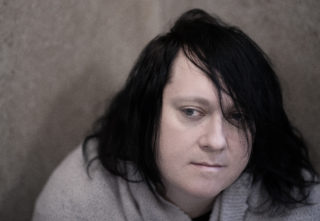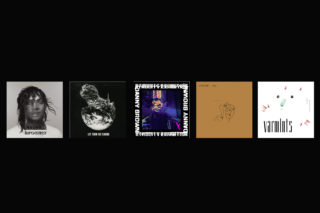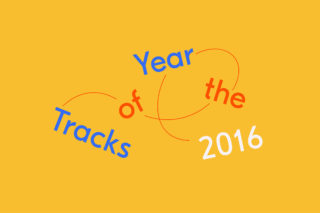GC: Hi ANOHNI. The last time we met was momentous for me [outlines all the reasons above]. I want to pass on my gratitude for that.
A: That sounds wonderful. I can’t believe that it would be me, but I’m glad if I was in any way catalytic. What have you noticed? How do you assess the last seven years in climate awareness?
GC: Funnily enough, that was a question I had for you! It’s hard to give a holistic answer. We have come a way, but it depends on different geographies and demographics. Speaking about journalism, I think some mainstream news outlets have put resources behind climate reporting, but I don’t think they’ve got to grips yet with how it intersects with everything. I think that’s the next piece.
A: I recognise what you’re saying. It’s as if there’s a safety in attempting to continue to compartmentalise something that’s actually all consuming at this point.
GC: Yes. I’m frustrated that we’re not further along with that.
A: Are you friends at all with George Monbiot [British writer known for environmental coverage]?
GC: I’m familiar with his work, but I’m not in touch with him. Are you?
A: Not actively. I’ve had messages with him in the past. I hugely admire him. I think it’s important to try to stay in touch with other people doing that work for justice in order to sustain some kind of level of wellness.
You need support when you’re doing work like that, because it can be quite lonely, gutting work to do by yourself.
GC: Yes, some days working principally in climate can feel meaningful, and other days you feel like you’re not making any progress at all. The feelings are quite extreme.
A: The truth is that all of the gestures are meaningful whether or not they’re absorbed or seem to affect change. When you’re fighting a good fight. Just as in every example of courageous activism, there’s a lot of smashing your head against the wall. That takes a real toll on the provider. It’s not necessarily like a sweet reward. Oftentimes, it’s a brutal response to a courageous gesture, and you just keep doing the work. Just make sure you have enough support.
GC: Yes, I’ve put the communications of people I admire into my network to help build resilience. That’s useful to me. Anyway, I wanted to start by sharing my thanks.
A: It’s meaningful that you’d tell that to me. I’m just an artist. You’re in a much more actively politically engaged field than I am. I’m more of a muse to the field that you’re part of, so if I can be of use then that’s my best foot forward, if I can be of support or use or inspiration to people who’re doing activism on the ground, then that’s the best possible application of my work.
GC: I’m a huge advocate for how music can be a gateway into climate for some people. It’s underrated, and so full of potential. It engages people on a level that perhaps something like clean energy may not.
A: And yet clean energy and music are very much the same thing, as a pure form. There should be a musicality to clean energy. I know that sounds cheesy, but it should be embraced as like creativity and motion.
A lot of the ways that we’re led to engage today, and have been led to engage for decades, have been designed to alienate us from our physical form – from a visceral or physical understanding of what’s really happening.
Like, the way we as people consumed colonial goods from the colonies, whether it was sugar or tobacco, or gasoline or high tech. There’s this process of infantilisation. That it seems like it’s almost necessary for one as a consumer to almost blindly ingest the goods in a guilt free way. But also in an ahistorical way. You’re no longer aware of where the things that you’re taking into your body come from or you’re no longer aware of where the things in your life come from. Especially in England. There’s a big reckoning happening in England and across Europe about its dependency – like the foundational aspect of slavery on the wealth of Europe. Its position as a “first world” region, it was all about domination and colonialism. A lot of the children, especially after World War II, were reorganised to forget that narrative. We were raised to believe our parents were the heroes of the Second World War. And that barbarism has ended and that a new age of civility is reigning supreme and that we were weirdly ahistorical.
We were being raised on BBC programmes that told us we were innocent, and we weren’t really challenged on how did we get here?
Now it’s 30 or 40 years later and everyone’s really being challenged in England, really to a point where things are becoming super polarised.
It’s overwhelming in a way. Like, how we’re going to talk ourselves down off the ledge? Because, as a species, we’re really broken. That’s part of all of our bodies, metabolisms and biologies. It’s ancestral, ancient and it’s deep within us. It’s a huge challenge we were facing seven years ago and it’s even more of an obvious challenge now.
GC: We haven’t created the spaces to be able to hold these huge thoughts and conversations…
A: My friends talk a lot about how the language isn’t even there. There isn’t a semantic structure to support these neural pathways. We need to embrace people who have other ways of thinking and dreaming. Other ways of organising themselves semantically. Why aren’t we asking for more help from indigenous leaders to think about what’s really happening? To try to come to grips with a different strategy moving forward? Because, at this point, I’m not seeing a game plan on the table – and it’s been the same for 20 years. There’s promises and governments making gestures that are obviously hollow. But nothing is on the table that’s going to prevent a collapse of biodiversity.
I think we need to be reaching further out of our toolbox now. We need to be reaching with more humility towards people that have a different grasp or spectral understanding of what’s really happening. Not just physically but spiritually.
I’m talking about reaching out to indigenous communities all over the world to help us. The only two things that I can see that could be of any deep use to us is a dramatic shift in the number of women who are in systems of governance. And then even more importantly to restore to the high seats our people with the highest vistas of understanding, to a sustainable relationship to the rest of the natural world. To ask them now to be our teachers because that’s what we need. That’s knowledge that we eviscerated.
This is a pipe dream maybe but it’s still possible, because those people still exist. For as long as they exist there’s hope that we could make a shift.
I mean, you go to a Davos conference, and then they bring like a few people from the Amazon to just decorate the hallways while the corporations are in the back room making the most malevolent decisions on behalf of the planet.
GC: I went to the UN climate conference COP26 in Glasgow, in 2021, and it felt like that.
A: Our indigenous leaders are the people with the most insight. Westerners aren’t reaching to them for insight, they’re just reaching to them for news porn or whatever. One thing that’s become clearer to me: with Hopelessness I was really railing against the machine. I really have to say, I feel so sorry for us now. I feel sorry for those men in power. There’s a tremendous poverty of the soul that I think many people in the white world experience now. An existential void. Lack of connection. A spiritual despair. A lack of understanding of who we are, and where we come from. It’s a terrible poverty and kind of a disease.
It’s not like 30 years ago when I was reading the articles by all the elders saying, “this is what’s happening” and no one was even listening. Everyone knows that this is like the end times. It’s not like we’re at the beginning of the end, we’re right in the very middle of it.
It’s not really a cause for shock anymore as much as it’s a cause for grieving now. Now is definitely the time to grieve. Now is the time to start crying. And for people to awaken to this crying feeling and to cry for the world and to stop what they’re doing and cry as much as they can. And to get together in circles and grieve. That’s power. Like, feel what’s really happening, even if it’s just grieving. Let’s do it as collectively as we can. There’s power, movement and collective agency in that.








